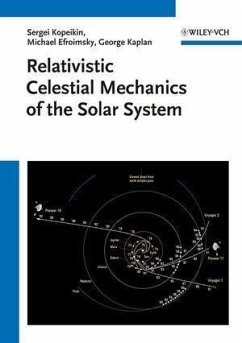This authoritative book presents the theoretical development of gravitational physics as it applies to the dynamics of celestial bodies and the analysis of precise astronomical observations. In so doing, it fills the need for a textbook that teaches modern dynamical astronomy with a strong emphasis on the relativistic aspects of the subject produced by the curved geometry of four-dimensional spacetime. The first three chapters review the fundamental principles of celestial mechanics and of special and general relativity. This background material forms the basis for understanding relativistic reference frames, the celestial mechanics of N-body systems, and high-precision astrometry, navigation, and geodesy, which are then treated in the following five chapters. The final chapter provides an overview of the new field of applied relativity, based on recent recommendations from the International Astronomical Union. The book is suitable for teaching advanced undergraduate honors programs and graduate courses, while equally serving as a reference for professional research scientists working in relativity and dynamical astronomy. The authors bring their extensive theoretical and practical experience to the subject. Sergei Kopeikin is a professor at the University of Missouri, while Michael Efroimsky and George Kaplan work at the United States Naval Observatory, one of the world?s premier institutions for expertise in astrometry, celestial mechanics, and timekeeping.
Dieser Download kann aus rechtlichen Gründen nur mit Rechnungsadresse in A, B, BG, CY, CZ, D, DK, EW, E, FIN, F, GR, HR, H, IRL, I, LT, L, LR, M, NL, PL, P, R, S, SLO, SK ausgeliefert werden.









